#the big sky
Text
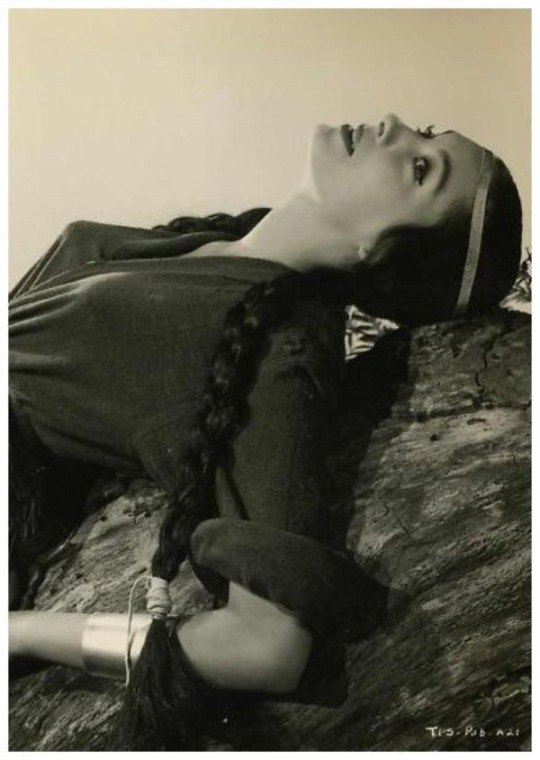
Elizabeth Coyote Threatt from her one and only movie appearance in The Big Sky.
#Elizabeth Threatt#old hollywood#classic hollywood#pin up#beautiful#cheesecake#pinupgirl#classic beauty#sexy#beauttiful girls#beautiful model#1950’s#1950s movies#the big sky#native american#beauty#vintage beauty#beautiful women#beautiful brunette#classic movies#howard hawks#beautiful actresses#beautiful body#natural beauty#beautiful eyes
60 notes
·
View notes
Text
Look what I found
Old but gold
J2 holding hands ❤️🌼
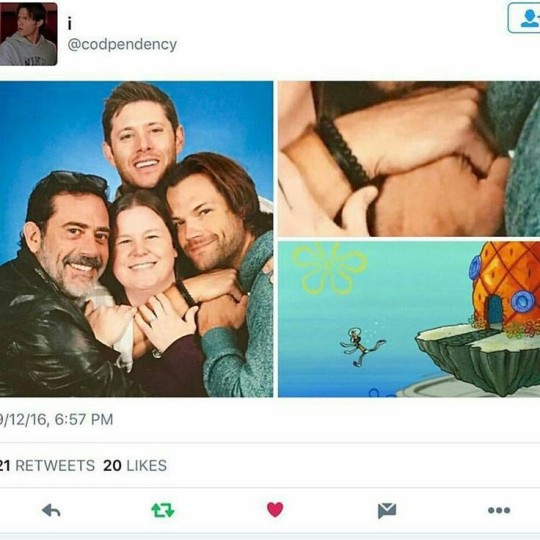
#jensen ackles#jared padalecki#j2#jared and jensen#soulmates#supernatural#jensenlovesjared#jaredlovejensen#walker#the boys#the big sky#j2 love#jared x jensen#Jensen x Jared#padackles
83 notes
·
View notes
Text

The big Sky (for my old friend @acommonloon ) ...
#art#artists on tumblr#watercolor#surrealism#americana#the big sky#the heat is on#a trifle hot#hot#summertime#the long hot summer#summer of '22#challenges#quests#responsiblity#a troubled world#ecology#humanity#late stage capitalism#one world one people#one world one vision#our world today#want change
40 notes
·
View notes
Text
The Big Sky (1985) vs. Hounds Of Love (1985)
5 notes
·
View notes
Text
youtube
Happy 65th Birthday to the genius that is Kate Bush.
One of my favourites...
2 notes
·
View notes
Photo

Kirk Douglas and Dewey Martin in The Big Sky (Howard Hawks, 1952)
Cast: Kirk Douglas, Dewey Martin, Elizabeth Threatt, Arthur Hunnicutt, Buddy Baer, Steven Geray, Henri Letondal, Hank Worden. Jim Davis. Screenplay: Dudley Nichols, Ray Buffum, DeVallon Scott, based on a novel by A.B. Guthrie Jr. Cinematography: Russell Harlan. Art direction: Albert S. D'Agostino, Perry Ferguson. Film editing: Christian Nyby. Music: Dimitri Tiomkin.
The Big Sky is a good Henry Hathaway or Budd Boetticher movie, except that it was made by Howard Hawks, from whom we have come to expect more. Hawks had just passed through one of the peak periods of his long career, with the sterling achievement of To Have and Have Not (1944), The Big Sleep (1946), and Red River (1948), and he was to return to form in Gentlemen Prefer Blondes (1953) and Rio Bravo (1959). But The Big Sky looks like a routine Western adventure in that company, even though it has some old Hawksian hands on board in screenwriter Dudley Nichols, cinematographer Russell Harlan, and composer Dimitri Tiomkin. It has the director's characteristic touches in places: overlapping dialogue and the usual male-bonding moments. Some of the latter, especially between Kirk Douglas's Jim Deakins and Dewey Martin's Boone Caudill, verge on the homoerotic, since Boone is given to wearing tight leather pants and both go around with their shirts flared open, making one scene look like it's taking place in a West Hollywood bar and not a St. Louis saloon. The absence of the usual "Hawksian woman," able to return wisecrack for wisecrack, is particularly noticeable. The only woman in the large cast is Elizabeth Threatt, playing an Indian woman named Teal Eye, who doesn't speak English. This was the only film appearance for Threatt, a model Hawks had spotted in a photograph. Her chief function in the film is to provide sexual tension among the members of a crew of fur traders making their way up the Missouri River and to spark a bit of rivalry between Jim and Boone. Teal Eye has been brought along on the expedition by Zeb Calloway (Arthur Hunnicutt) to act as a go-between with the Blackfoot tribe, to which she belongs. Also along for the journey is a somewhat addled Blackfoot known as Poordevil, played by Hank Worden, a regular member of John Ford's stock company who sometimes moonlighted for Hawks. The journey is interrupted by Indian attacks, river rapids, and the threats from a rival trading company, in scenes that are staged and shot well but never provide more than the routine excitement of the genre. Hunnicutt and Harlan received Oscar nominations for their work.
1 note
·
View note
Text
658 to go
The Kingdom (1994, dir. Lars von Trier, Morten Arnfred): It's really frustrating to me that no matter how unlikable I find von Trier as a person, I've yet to see a film by him I didn't love.
BlacKkKlansman (2018, dir. Spike Lee): Incredibly engaging, tense, funny, enjoyable film. Then the Charlottesville epilogue hits and it's like a punch to the gut.
Housekeeping (1987, dir. Bill Forsyth): This movie has all the ingredients to be a favorite of mine but something's missing in the execution.
The Awful Truth (1937, dir. Leo McCarey): I'm sure it says something about American society at the time that romantic comedies starring divorced couples were such a thing.
The Magnificent Ambersons (1942, dir. Orson Welles): This movie was notoriously "ruined" by the studio, though it still has its defenders who say it's on par with and even greater than Citizen Kane. I'm not one of those people but I can definitely see how it had the potential to be much better if not for the editing.
The Nutty Professor (1963, dir. Jerry Lewis): I find Jerry Lewis charming kind of in spite of his style of comedy, and every movie of his I see I grow a little bit fonder of him. Artists and Models is still my favorite, though.
Ariel (1988, dir. Aki Kaurismäki): I'm not sure how to describe the worlds Kaurismäki creates in his films. Bleak and hopeful at the same time, beautiful not in spite of but kind of because of their ugliness.
The Big Sky (1952, dir. Howard Hawks): I was a bit fatigued with movie watching at this point, so I definitely didn't pay this film the attention it deserved. I like Douglas Kirk, that's about all I retained.
#1001 movies#the kingdom#blackkklansman#housekeeping#the awful truth#the magnificent ambersons#the nutty professor#ariel#the big sky
2 notes
·
View notes
Text
youtube
1 note
·
View note
Text

Elizabeth Coyote Threatt from her one and only movie appearance in The Big Sky.
#Elizabeth Threatt#old hollywood#classic hollywood#pin up#beautiful#cheesecake#pinupgirl#classic beauty#sexy#native american#cherokee#retro beauty#the big sky#retro model#beauty#1950s#1950s movies#retro sexy#natural beauty#beautiful brunette#classic movies#howard hawks#beautiful model#beautiful women#beautiful actresses#beautiful eyes
36 notes
·
View notes
Text
J2 💙
Always 🌼🥺
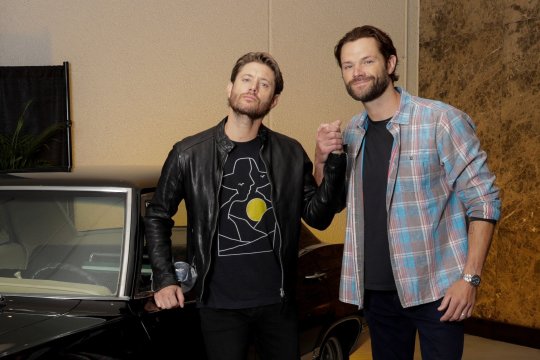
#jensen ackles#jared padalecki#j2#jared and jensen#soulmates#supernatural#walker#the boys#the winchesters#the big sky#walker independence#jaredlovejensen#jensenlovesjared
29 notes
·
View notes
Text
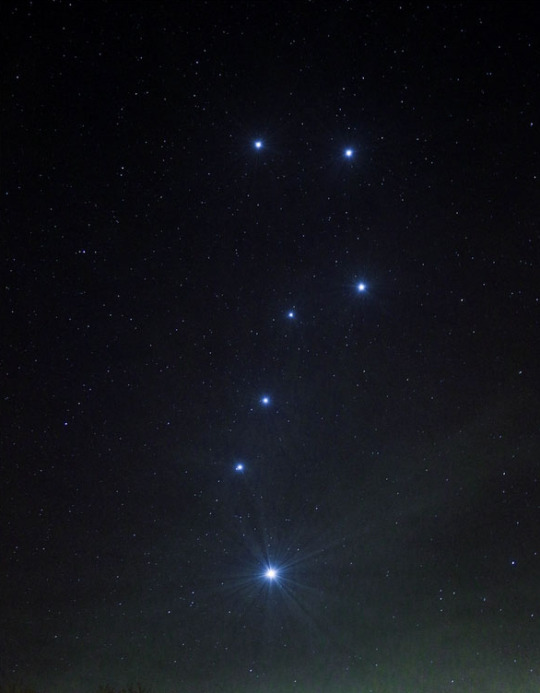
Big Dipper
10K notes
·
View notes
Text
The Big Sky (1952)
A group of rogue fur traders head up the Mississippi river to deal with some Native Americans but when two members of the party fall for the same kidnapped princess, it could spell trouble.
A great deal of the iconography for this film is invested in the scenery of wide open spaces, building on a wealth of national rhetoric about the future being ready for exploitation at the time. Some of the characters are amusing if not actually engaging, much of their endearing quality being based on their philosophical outlooks.
As one may expect from a film based in US history, there’s an awful lot of casual racism and sexism saturating the story and dialogue. This along with a kind of pseudo-masculinity disguised as banter makes it wearing to watch at times and outright distasteful frequently with particular emphasis on ignoring the culture of the already established population.
In some ways it’s so obvious in its methods that it could work as an exposé of historical propaganda techniques by highlighting typical terms and imagery like ‘pioneers’, ‘Indians’, or the mentions that they’re the first people to explore and face the dangers of the people whose land it already is. There are a few better scenes closer to the end where the two cultures briefly interact without conflict, though it’s still largely clichéd.
The pace is draggingly slow due to the journey being one of gradual plodding, with several days of sitting around being cut sometimes. There’s little suspense when they’re not being attacked and even the threat of a fight involves far too much waiting. The ending is also thoroughly underwhelming as it’s less a pay-off than a retraction of a decision with no visual stimulation.
2/10 -It’s not THE worst, that’s something else. But…-
0 notes
Quote
He wanted to be by himself, to go along alone with the emptiness that was in him, to look and listen and see and smell, to say goodbye a thousand times and, saying it, maybe to find that the hurt was gone. He wanted to hear water at night and the wind in the trees, to take the mountains and the brown plains sharp and lasting into his mind…feeling the night press in around him, seeing the stars wink and the dipper steady, and everything saying goodbye, goodbye.
The Big Sky, A. B. Guthrie Jr.
0 notes
Text
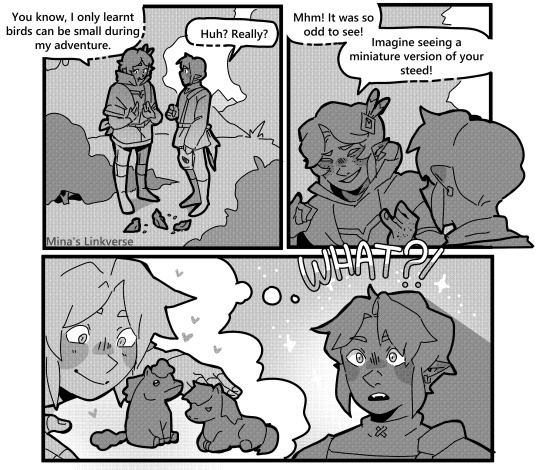
Would you rather fight a bunch of duck-sized horses or one horse sized duck?
#Twilight#Sky#Comic#I know you're going to comment abt mlp under this#It's an unavoidable truth that when u draw lil horsies that happens#Anyway his fav character would be Big Mac
1K notes
·
View notes